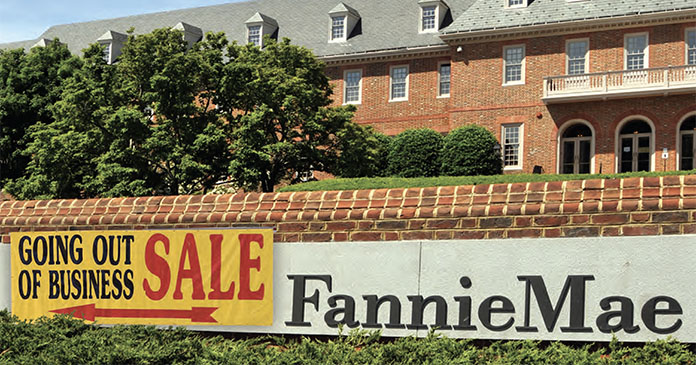The mortgage buyers, now controlled by the government, and their regulator, the Federal Housing Finance Agency, are “facing challenging times,” the agency’s head Edward DeMarco told a congressional panel.
Republican lawmakers are leading efforts to overhaul the country’s housing finance system. Topping their list is eliminating Fannie Mae and Freddie Mac, which were seized by the government in September 2008. The two companies have since been propped up with about $164 billion in taxpayer aid.
“During this period, I respectfully ask that care be taken to provide FHFA, as regulator and conservator, with sufficient flexibility to use its best judgment to preserve and conserve the entities’ assets,” said DeMarco, the acting director of the Federal Housing Finance Agency, also known as the FHFA.
Republicans in the U.S. House of Representatives have introduced a number of bills to cut government’s role in the $10.5 trillion housing finance market.
Among measures being contemplated include those that would prevent the creation of Fannie and Freddie replacements should the government and Congress succeed in winding the entities down.
One bill caps the amount the government could spend to prop up Fannie Mae and Freddie Mac. Another would force the companies to disclose certain information in response to requests from the media and the public under the Freedom of Information Act.
DeMarco said Fannie and Freddie were still private companies operating in conservatorship, and that forcing them to disclose certain information could incur significant operational and compliance costs.
“They did not cease to be private legal entities when they were placed into conservatorship, nor did they become part of FHFA,” he said.
The Obama administration, which proposed earlier this year to unwind the mortgage buyers, and other top financial policymakers have warned against removing government support too quickly and damaging the economic recovery.
Realtors balk at loan limit proposal
Lawmakers are also mulling plans to reduce the size of mortgages that the government guarantees, upsetting home builders and realtors who argue that doing so would further depress home prices and the housing recovery.
The size of the so-called conforming loan limits, or loans backed by the government, is already set to fall to $625,500 from $729,500 at the end of September.
The draft legislation would effectively reduce the loan limit by removing the $271,050 floor for federally backed loans and calculating the cap based on 125 percent of median home prices by county.
The National Association of Home Builders told the panel that revamping the government-backed loans in this fashion would leave swaths of first-time home buyers without a key source of mortgage financing.
“Counties across the country would see their loan limit reduced by tens of thousands of dollars,” Barry Rutenberg, the group’s first vice chairman, told the hearing. “This would place further downward pressure on home prices.”
The National Association of Realtors, which represents about 1.1 million realtors across the country, told lawmakers that reducing loan limits would shrink the availability of mortgages in more than 600 counties.
“This decline would have a dramatic impact on liquidity in these markets, and could halt the housing recovery,” Ron Phipps, president of the association, told lawmakers.
Author: Rachelle Younglai, Reuters
















